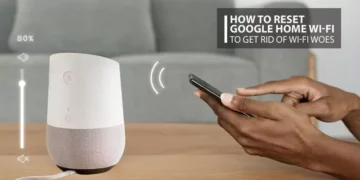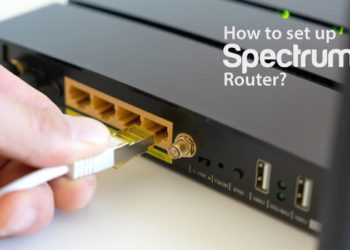Modern technology is upgrading on a daily basis, and the world of the internet is also another parameter to consider in this race. With internet speed oscillating from 3G to 4G and now 5G, it makes me wonder about all the mystery it is hiding.
You might be familiar with two internet settings- one is fiber internet, and the other is wireless, which we commonly know as Wi-Fi. Though Wi-Fi connection is becoming a common trend nowadays, there are certain aspects upon which we can still consider fiber internet connection as the prime source.
Which one do you favor more? Hence, to end this debate, we conducted intensive research on fiber internet vs Wi-Fi connection and found some significant pros and cons on either side. I hope you find them interesting!
Fiber Internet – Brief Explanation

As we have already mentioned, fiber internet generally comes with a wire connection from the local cable operator’s office to your house. Generally, these consist of fiber optics cable.
What is a fiber optics cable? These cables come in multi-layer construction, consisting of air and glass, and they carry data in light pulses. These pulses travel through the cable medium at a speed of light with the property known as total internal reflection.
This working phenomenon makes fiber connection one of the fastest and most reliable technology to own in a household. No matter how far you are from the source, the internet connection does not get slower unless the cable operators start to decrease the bandwidth.
The speed of fiber internet is also off the chart. Through our research, we came around some people that have experienced 1 Gbps of speed in fiber internet. This huge download and upload speed make it suitable to have a fiber connection in the offices.
Read to know about: Top 10 Best Unlimited Internet Plans for Home Use.
Wireless Internet – Brief Explanation
Nowadays, technicians and engineers tend to make everything simple, efficient and cheap. Dealing with fiber internet is tough because of its management of wires which is both hassle and costly to afford.
How about some radio frequency signals for the internet? Hence, they bring you wireless internet service, known as Wi-Fi or WLAN. But Wi-Fi connection will not survive without fiber internet.
Fiber internet supplies light pulses from the cable operator’s head office to every household’s main unit. From that point on, these light pulses are converted into radio frequency energy which then converts into a wireless connection network.
Read to know about: Best Unlimited Home Wi-Fi Plans provided by ISP
Fiber Internet vs Wi-Fi – Evaluating the Pros and Cons
During the argument of fiber internet vs Wi-Fi, the evaluation will be much easier if we can explore the individual pros and cons of the two internet connection medium.
Fiber Internet
| ✅ Pros: | ❎ Cons: |
|---|---|
| First and foremost, the benefit of having a fiber connection is that the quality of the connection does not degrade very often. The distance from the source to the receiver is not a fact. In comparison to Wi-Fi, fiber has much more browsing and downloading speed (500 – 1000 Mbps). | Though fiber optics cables are much more durable, the transmission lines remain exposed daily, giving them a high chance of physical damage from birds, tall vehicles and many more. |
| Fiber optics connection has the best security ever. With any kind of server attack such as DDoS, cutting the cable and disconnecting the server will be very easy. | If your cable operator’s office is very far from your home, extracting fiber connection from that distance will require a large gauge of wires, making the installation cost much higher. |
| Apart from the management system, optical fiber cables are easy to carry. As they are five times smaller and twenty times lighter than copper wires, setting them up on the grid is not very troublesome. | Cable tends to bend for long distances because of several acting forces. The bending of optical fiber wire creates bending losses, decreasing internet speed. |
| Fiber connection is a bit costly when you first tend to install them. But, once you are done with the installation, it will serve you for a longer time and is much more durable. |
Wireless connection
| .✅ Pros: | ❎ Cons: |
|---|---|
| As the Wi-Fi connection is based on radio frequency, there is no need to install wires from your ISP to your house. A suitable router is enough to receive the signals and transmit them around your house. Hence, the initial cost is lower. | As the source of wireless internet connection is radio frequency. The strength of the signal will degrade when you move further from the central network station. |
| The installation process of a wireless internet connection is not time-consuming. All you need is a robust router or an antenna, and your set-up is ready within 30 minutes. | There is a reasonable probability of hacking into a wireless connectivity server rather than a fiber network. On the other hand, finding the exact hacked channel is also tricky, whereas in fiber, you can shut the cable, and the whole process stops. |
| In the case of wireless internet service, there is an ability where you can access the hotspot. This feature has a significant benefit on the business scale as you can allow your clients or customers to browse the internet on a more secure and different bandwidth of the network. |
Fiber Internet vs Wi-Fi – which will be the best option?
Well, our research says that it will not be a bad decision if you can manage the facilities of both wireless and fiber connections at the same time. Especially if you are running a business institution, having a Wi-Fi connection acts as a backup in case, your fiber connection goes down.
In rural areas, managing the bulk of cables to send the fiber internet connection is very much troublesome. This can be achievable with a wireless connection. When you have been given the responsibility to decide on fiber internet vs Wi-Fi, make sure to consider three things- speed, distance, and ease of installation.
If all you want is faster internet speed and distance and installation do not matter to you, choose fiber internet without any sort of doubt. On the other hand, when you are about to provide internet to a small region, connect them with Wi-Fi, and the hotspot feature will take care of the rest.
For those who are wealthy enough to afford both, we suggest getting both facilities as you will be the king of both bandwidth and hotspot services.
Recommended to new subscribers: What to consider choosing top internet providers?
Frequently Asked Questions
01. What is the difference between fiber internet and Wi-Fi?
Fiber internet uses fiber optics cable that sends light beams through a glass air medium with the principle of total internal reflection. Whereas wireless internet uses radio frequency to broadcast internet bandwidth to a specific region.
02. Is a wireless internet connection better than fiber?
A Wireless internet connection is better in terms of installation, and one network can be transmitted through to many users using a hotspot. But the internet speed is much lower than fiber internet. Therefore, decide between fiber and wireless connection based on your specific requirements.
03. Which is more affected by load shedding- fiber or wireless internet?
As fiber internet is a light ray coming from a great distance, if there is no load shedding from the main headquarter, your connection will not disrupt. Wireless connection works through a router medium that requires an external power supply. Therefore, if there is no electricity in your area, your wireless connection will also be down.
04. Can we use cascade fiber and wireless connections?
Definitely! As a matter of fact, the majority of household systems use cascade versions of fiber and wireless connections. Fiber from the main line enters the house and connects with the router. The router then establishes a wireless connection inside the house.
05. Which is more expensive- fiber or wireless?
As fiber internet requires a huge amount of cables for the connection, its installation cost is much higher than a wireless connection. On the other hand, the only expense related to wireless connection is buying a router.
06. What is the maximum speed of a fiber internet connection?
Fiber internet works on the principle of total internal reflection of light rays. If the light impulses have greater concentration, your internet will have more browsing or download speed, delivering you a maximum speed of 100 Gbps.
Conclusion
It’s like making choices over tea vs coffee in the morning. That, fiber internet vs Wi-Fi is no exception. Fiber internet is more reliable in terms of speed and less interference with other signals, and Wireless connection gives more options to connect to multiple devices from one source.
On the other hand, fiber internet has a higher cost of installation, and wireless connection has a frequent chance of slow internet. Our suggestion will be to get both sources if possible.
At the end of the day, you can relieve yourself on either connection type, but the desire is to be more efficient and faster. Have fun in light-speed browsing.








